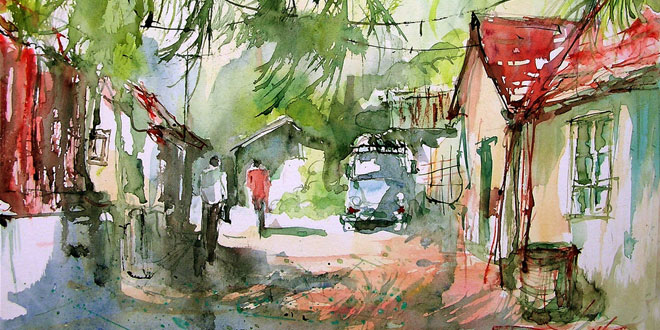Question: What were the effects of the Diwani granted by the Mughal Emperor to the Company in 1765, on the peasants, artisans and general people of Bengal within next five years?
Answer: With in a short span of 5 years (from 1765-1770) it became quite clear that the Bengal economy was facing a deep crisis. Artisans were deserting villages since they were being forced to sell their goods to the Company at low prices. Peasants were unable to pay the dues that were being demanded from them. Artisanal production was in decline, and agricultural cultivation showed signs of collapse. Then in 1770 a terrible famine killed ten million people in Bengal. About one-third of the population was wiped out.
Question: The cultivation of which crops was felt in India by the company for Europe? What was done for it?
Answer:
- The British East India Company realised that in India it could grow the crops that Europe needed.
- By the late eighteenth century the Company was trying its best to expand the cultivation of opium and indigo. In the century and a half that followed, the British persuaded or forced cultivators in various parts of India to produce (now Uttar Pradesh), wheat in Punjab, cotton in Maharashtra and Punjab, rice in Madras.
- How was this done? The British used a variety of methods to expand the cultivation of crops that they needed.
Question: Describe the main features of the Permanent Settlement.
Answer: The main features of the Permanent settlements were:
- The amount of revenue was fixed permanently, that is, it was not to be increased in ever in future.
- It was felt that this would ensure a regular flow of revenue into the Company’s coffers and at the same time encourage the zamindars to invest in improving the land.
- Since the revenue demand of the state would not be increased, the zamindar would benefit from increased production from the land.
- Under this system revenue had been fixed so high that the zamindars found it difficult to pay.
- Even when the income of zamindars increased with the expansion of cultivation, the company had no chance of gain because it could not increase a revenue demand that had been fixed permanently.
- The system proved oppressive for the cultivators.
 Class Notes NCERT Solutions for CBSE Students
Class Notes NCERT Solutions for CBSE Students


